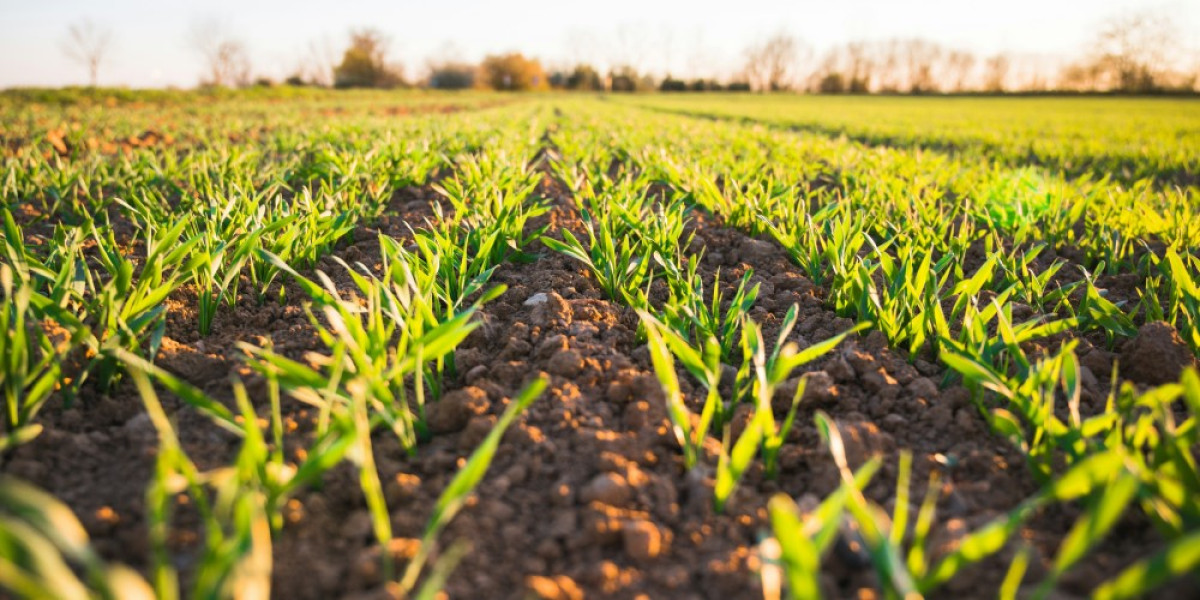Assessing the Agri-Food Revolution in New UBS Sustainability Report
By Peter Cullinane | 1 May 2024
minutes to read.

Agricultural food production is one of the most essential industries in the world. But what’s the cost when the way we sustain our people is sabotaging our planet?
The agri-food industry is facing a Green Revolution, where the processes of production and consumption are changing. ‘Grow, Move, Eat, Repeat’, the new report from the UBS Sustainability and Impact Institute, emphasizes how critical this change is – and what must happen to effect it.
Oritain was pleased to contribute to the report on the subject of technology solutions. But I think we can go further. I think significant, lasting change can happen right now.
You say you want a revolution? Let’s take a closer look.
The growing revolution in food production
In the United States, agriculture, food, and related industries contribute 5.6% to GDP and provide 10.4% of employment. As its GDP contribution has risen over the last four years, so too has the importance of the sector.
And yet, our global food system has negative consequences for nature and our climate. The UBS report reveals that the agri-food industry is responsible for at least 90% of global deforestation.
The solution lies in changing how the world grows, moves, and consumes food – what’s referred to as the ‘Green Revolution 2.0’. But as the UBS report author, William Nicolle, points out, the agri-food industry today is structurally unprepared to deliver on sustainability goals. Risk aversion, cashflow caution, and fragmented supply chains all conspire to pull the handbrake on innovation.

The report proposes a framework to address the sector’s challenges: Grow, Move, Eat.
- Grow includes improving on-farm efficiency, changing production models, and adopting advanced tools.
- Move focuses on creating more flexible supply chains to increase food shelf life, enable better distribution, and reduce wastage.
- Eat covers improving consumer and retailer behavior through better information and more sustainable consumption habits.
This is a true multi-faceted approach. Achieving meaningful change across every step of the framework is the only way to ensure this revolution doesn’t become merely yesterday’s dream.
Influences on sustainable practice
Food and beverage brands are increasingly finding themselves in the sustainability spotlight – their social and environmental actions scrutinized by watchful markets.
Having worked in and with the sector for many years, it’s something I’m especially aware of. For business leaders, committing to sustainability goals is a corporate imperative. It’s driven by both external (what do stakeholders tell us to do?) and internal (what is the right thing for us to do?) influences.
The UBS report states that “global sustainability goals will act as the dominant driver of change”. That’s because regulators demand it, investors reward it, and consumers expect it.
- Across the world, regulation is mandating better environmental practices. The EU Deforestation Regulation (EUDR) bans the import and sale of products from deforested land, while greenwashing legislation ensure environmental claims are accurate and verifiable.
- In an industry of tight margins, investment is essential for growth. Investors are seeking greater clarity on businesses’ environmental impacts – and rewarding positive commitments with capital, as reported in the PwC Global Investor Survey 2023.
- ESG is driving consumer spending, with a third of consumers choosing brands which demonstrate positive environmental practices. Forward-looking businesses can leverage this trend out of either social consciousness or a desire for market leadership.
Traceability enables knowledge and action
Identifying the challenges and recognizing the influences are just part of the picture. Successful revolutions need change and a fresh approach.
The Grow, Move, Eat framework proposes a range of solutions for each step – from farm processes and pricing, to technology and communication. The report assesses these solutions in terms of ‘market readiness’. Mature solutions which are fully developed and investable can be deployed sooner – and see results faster.

Traceability technology provides a solution to pinpoint product origin. Oritain’s forensic analysis advances this field further, by scientifically testing products and raw materials to define product origin and authenticity at the highest levels of accuracy.
However, rather than a ‘near market’ solution, as the UBS report states, Oritain traceability is already making a major impact. Major food and beverage brands like Nestlé and Silver Fern Farms are leading the way in using Oritain’s services to prove product origin, protect integrity, and strengthen their brand.
The technology is based on proven scientific principles, is recognized by government bodies for its credibility, and has been successfully scaled across a diverse range of commodities and geographies.
By providing critical information for regulators, investors, and consumers, traceability can drive significant changes throughout the value chain.
The UBS report is an invaluable read for anyone in the agri-food business. In today’s environmentally-conscious world, it provides some stark lessons about the state of the sector – but also some hope for the future too. And that’s a revolution we should all get behind.
To learn more about how Oritain helps organizations prove product origin and improve their sustainability performance, contact us to speak with one of our team.
Disclaimer: The information provided in this document does not and is not intended to constitute legal advice. Instead, all information presented here is for general informational purposes only. Counsel should be consulted with respect to any particular legal situation.
